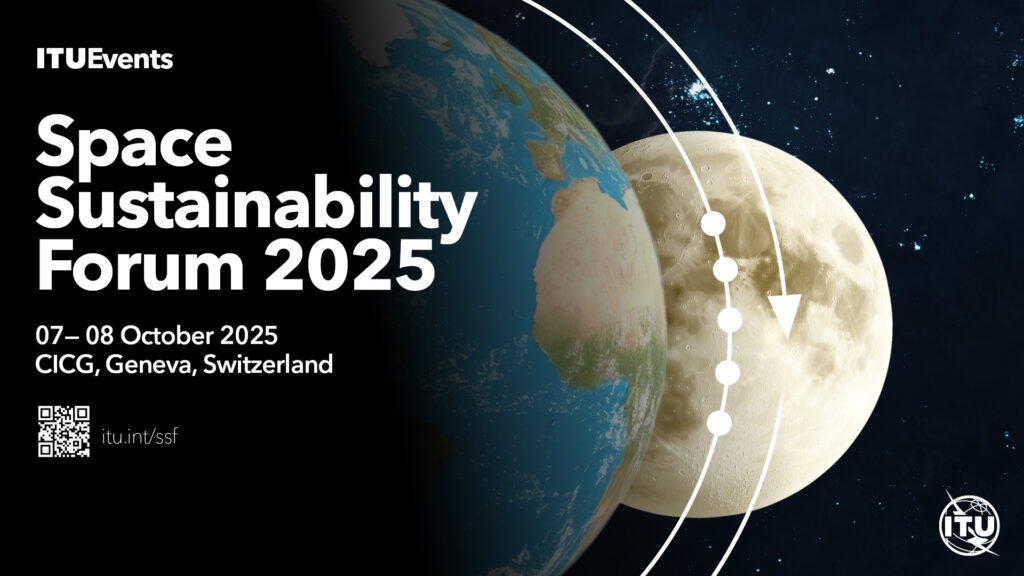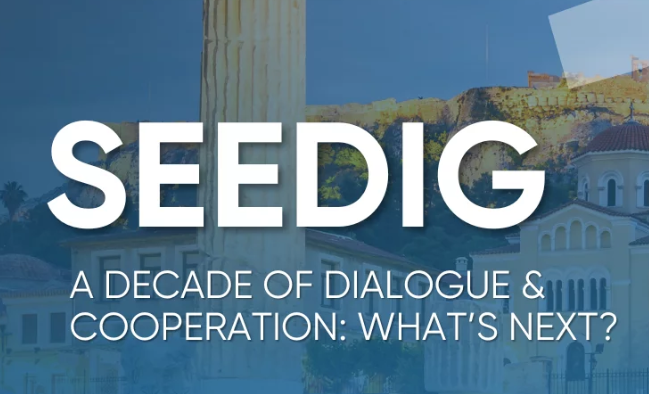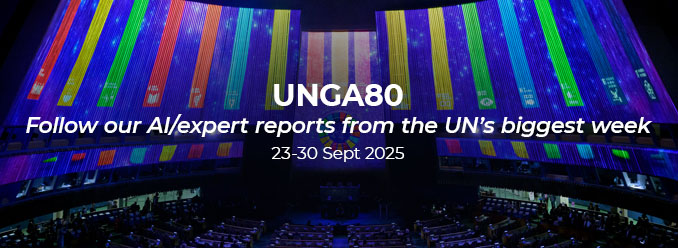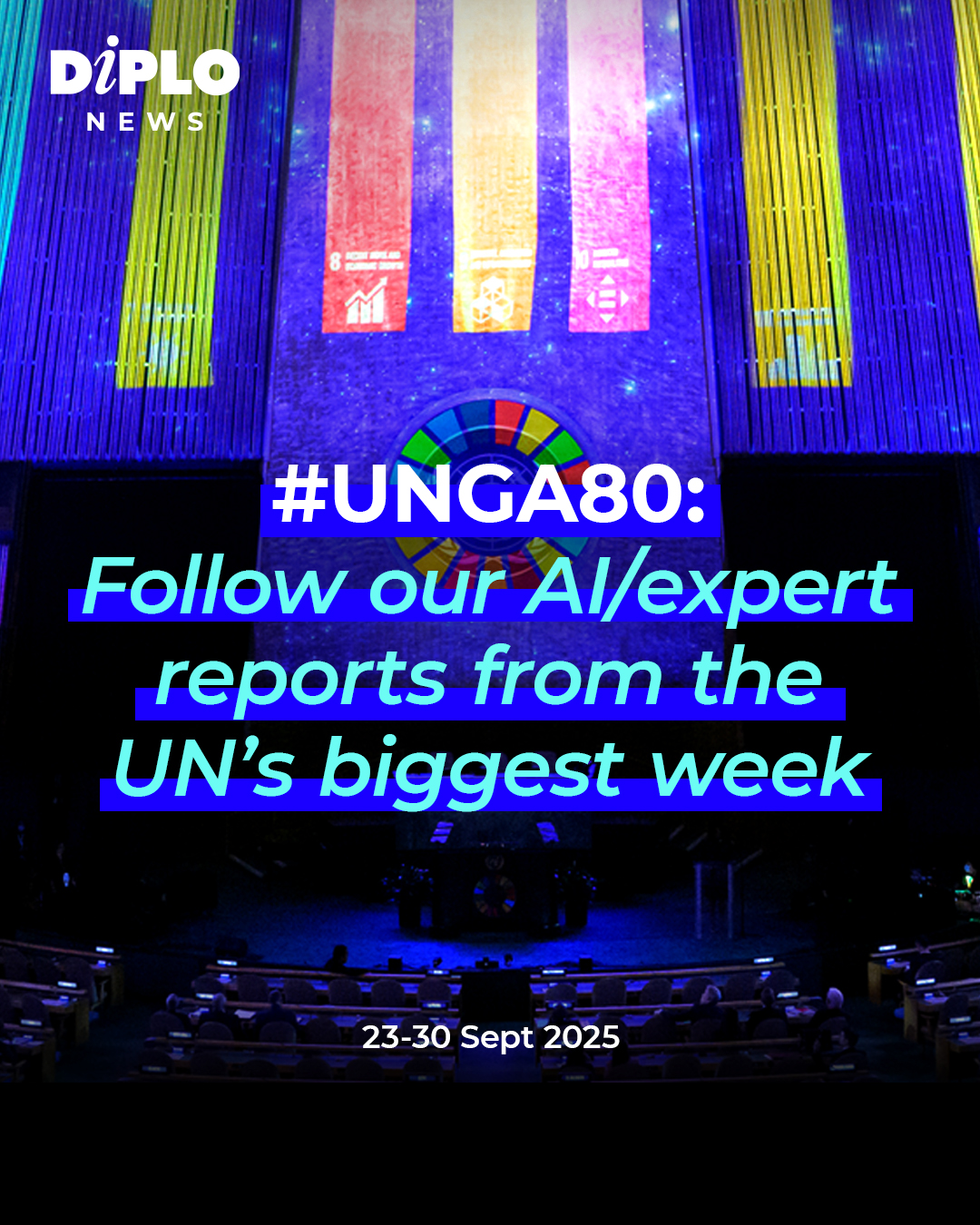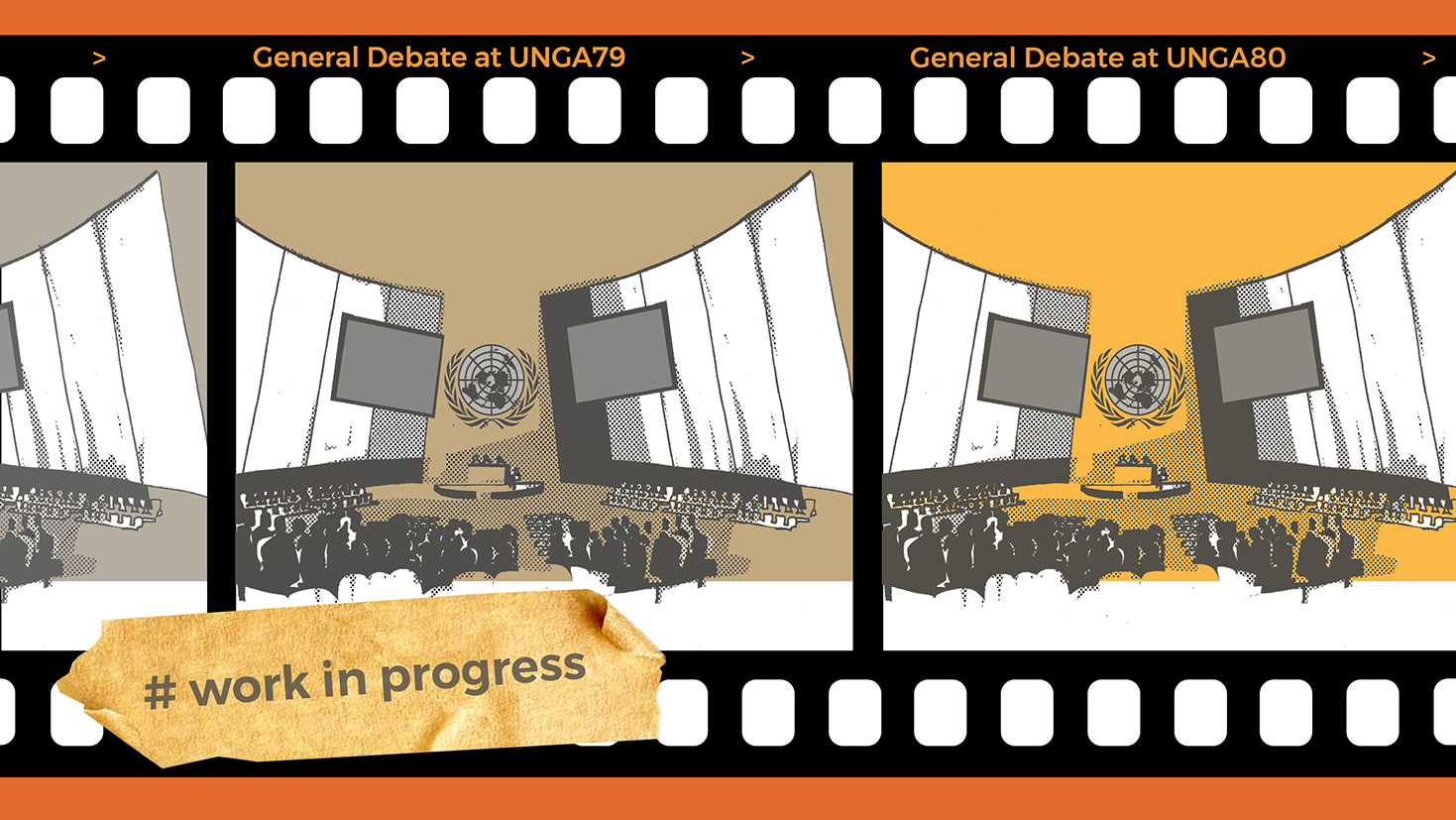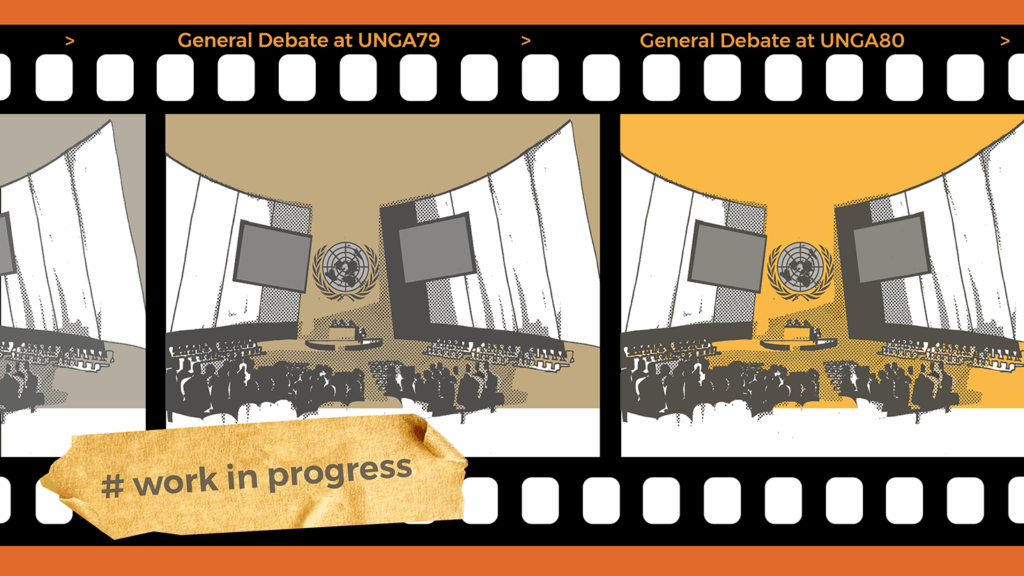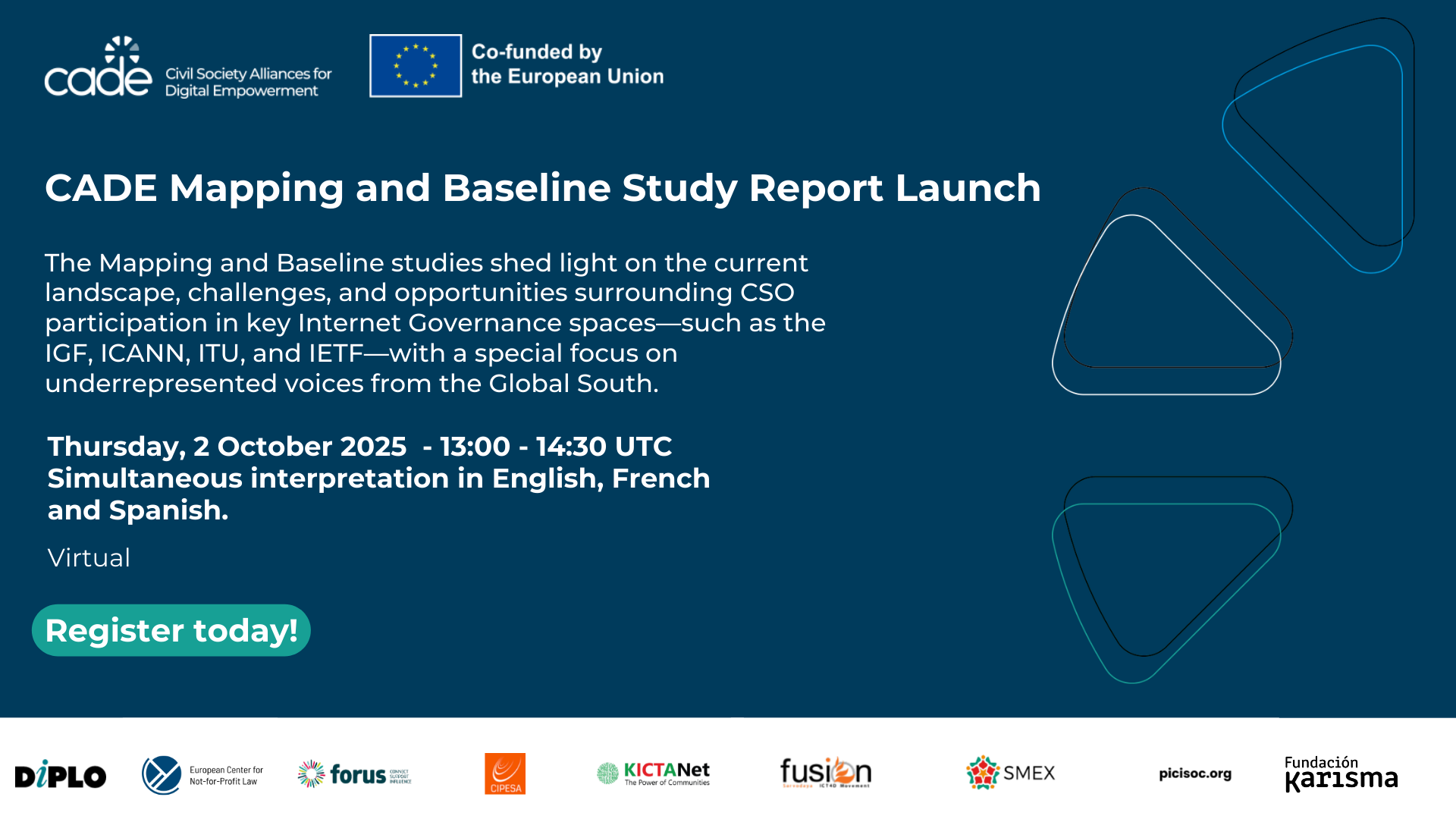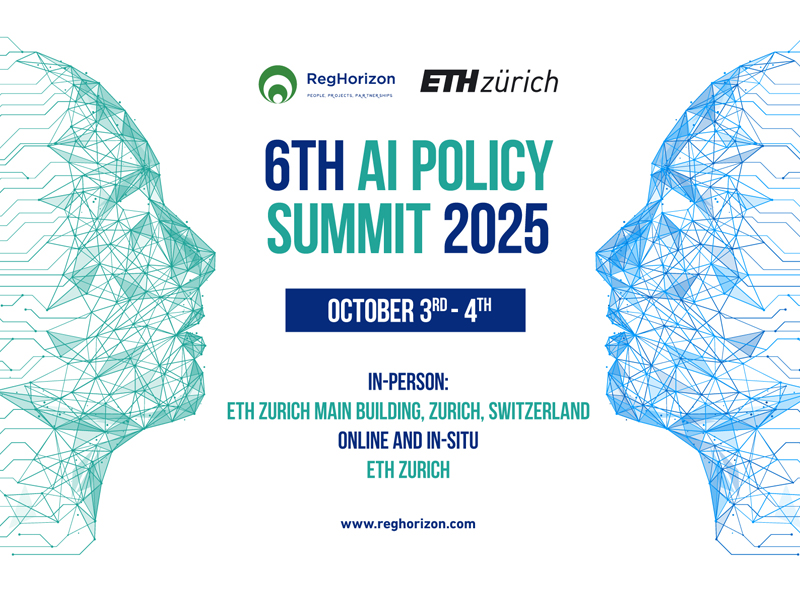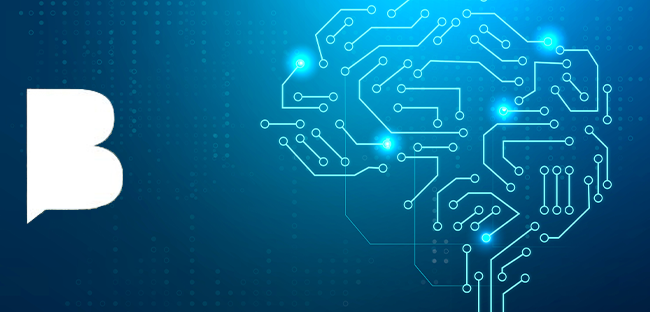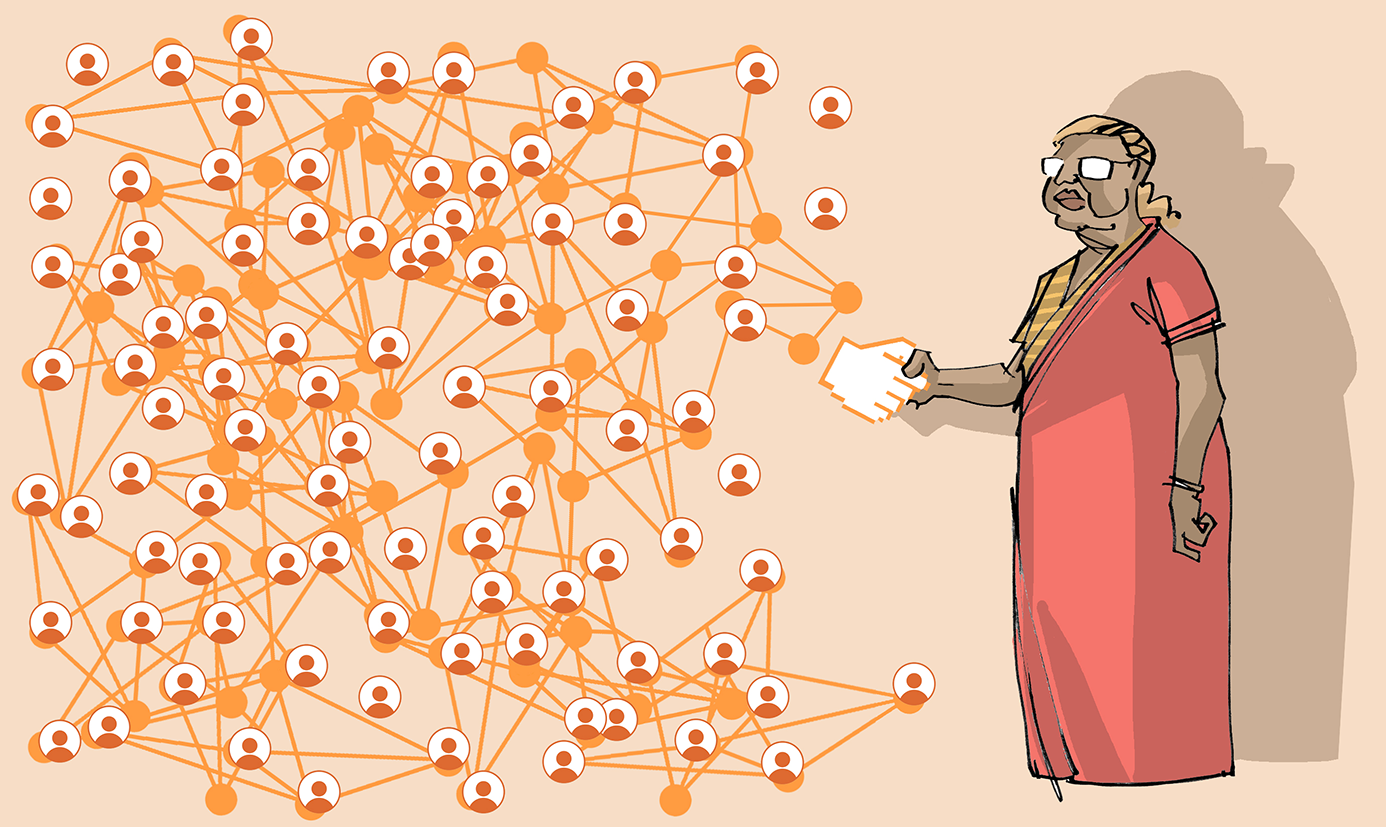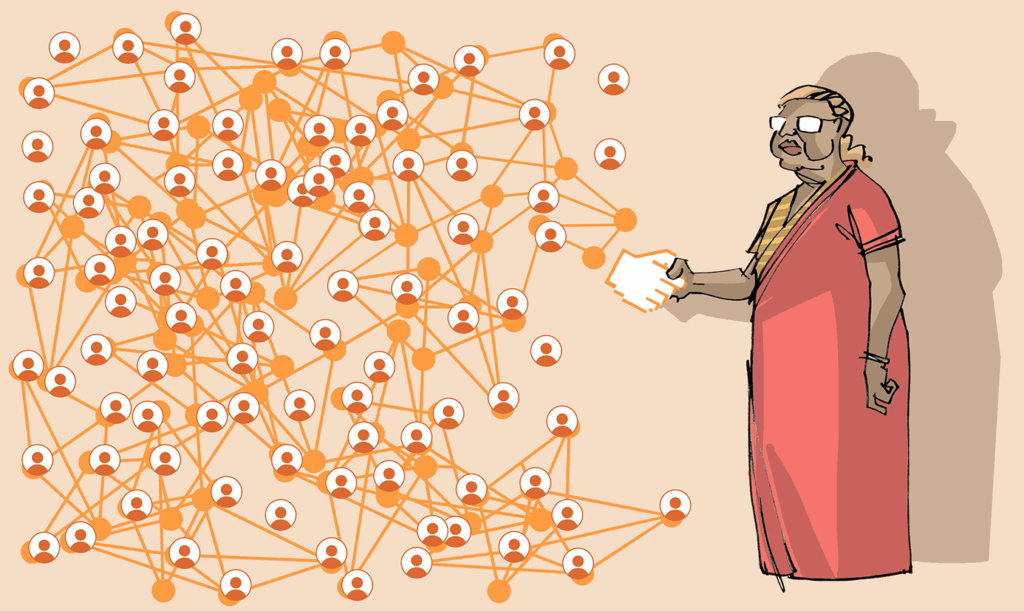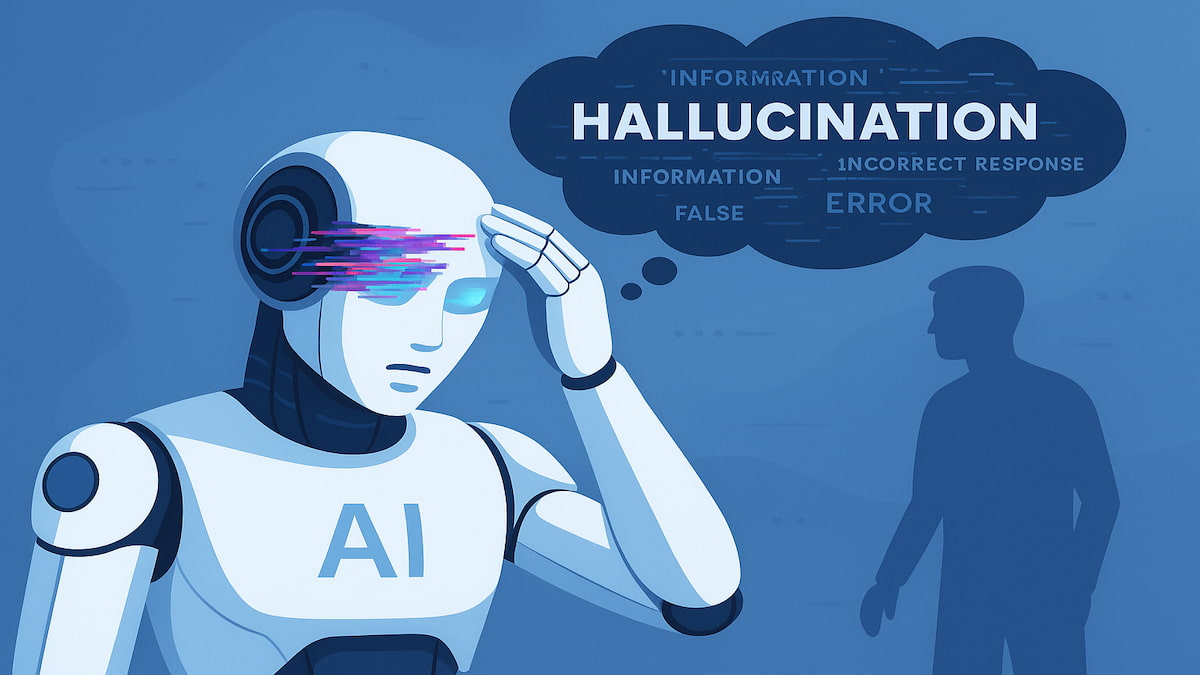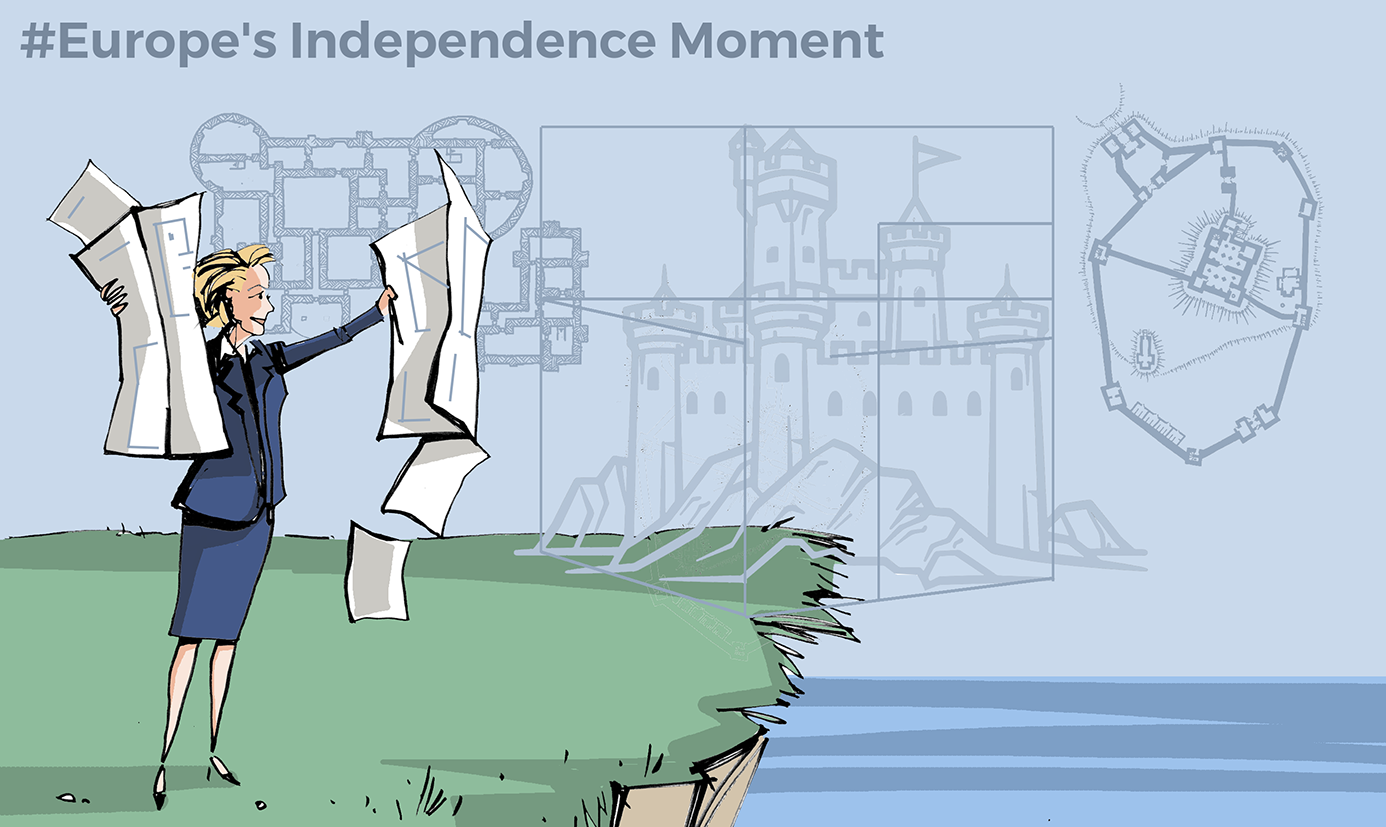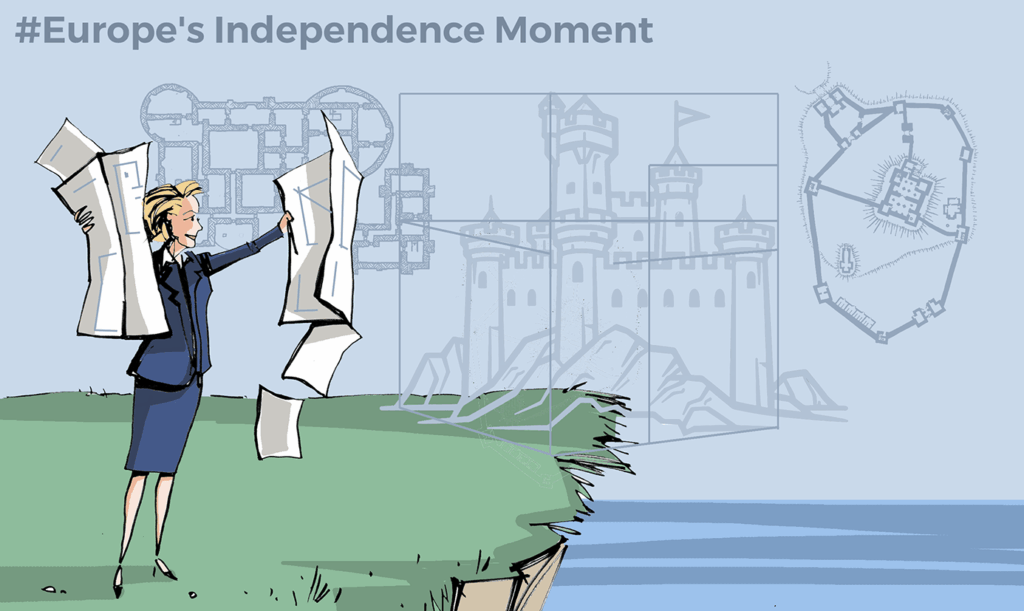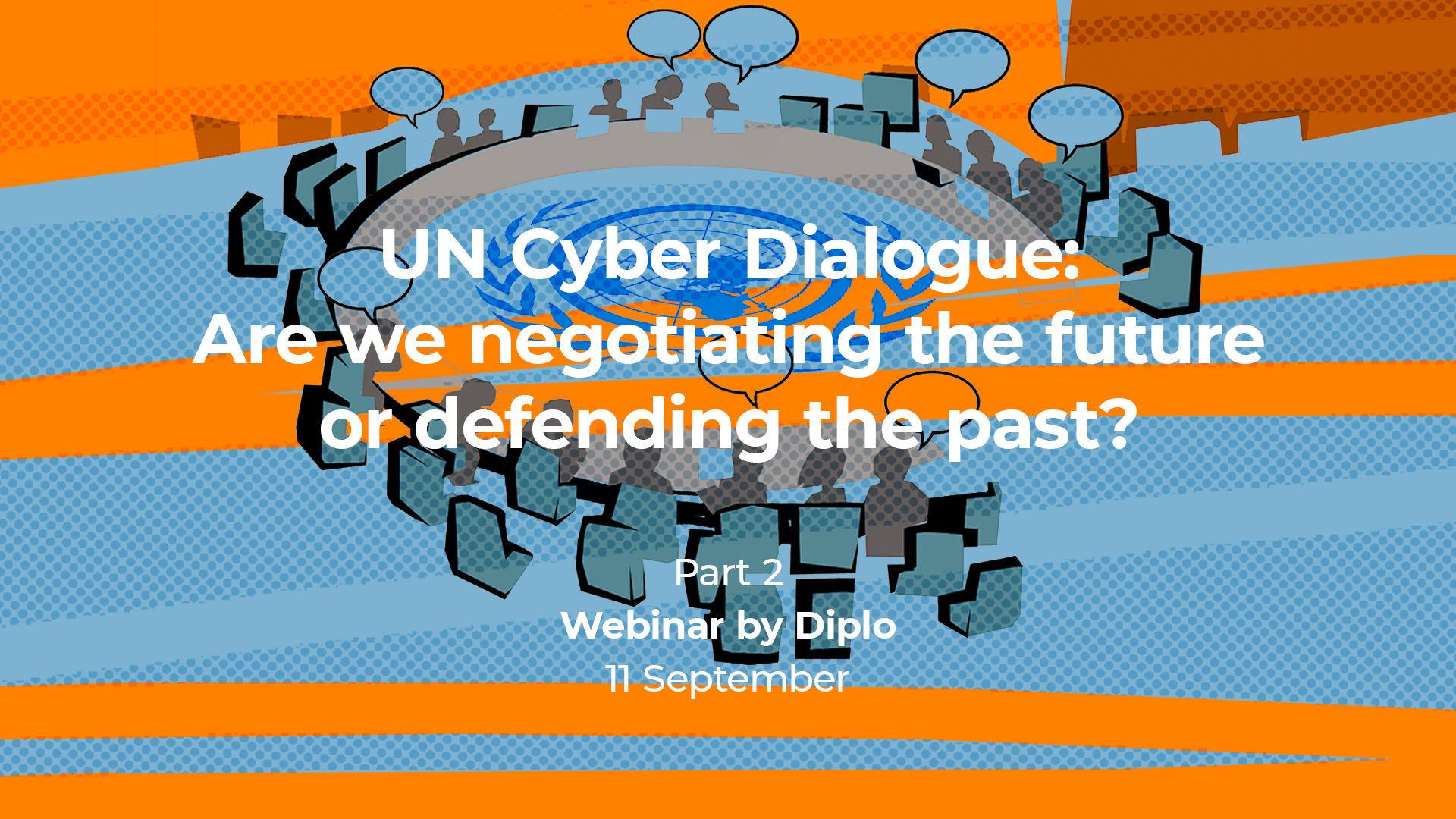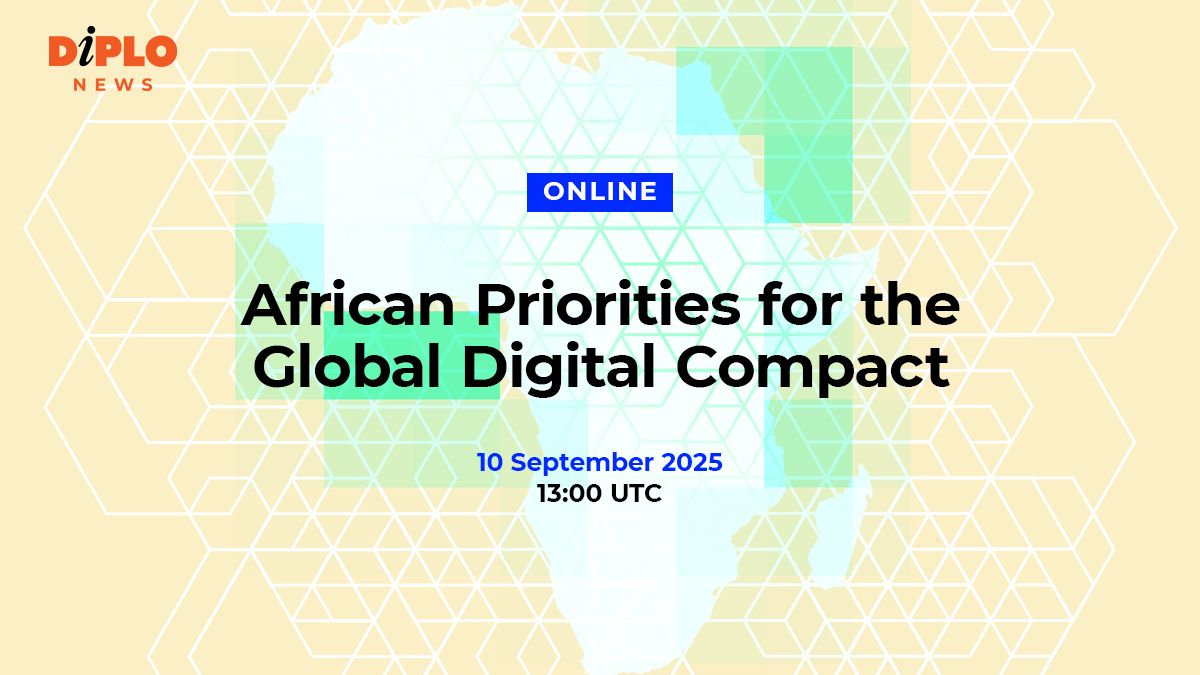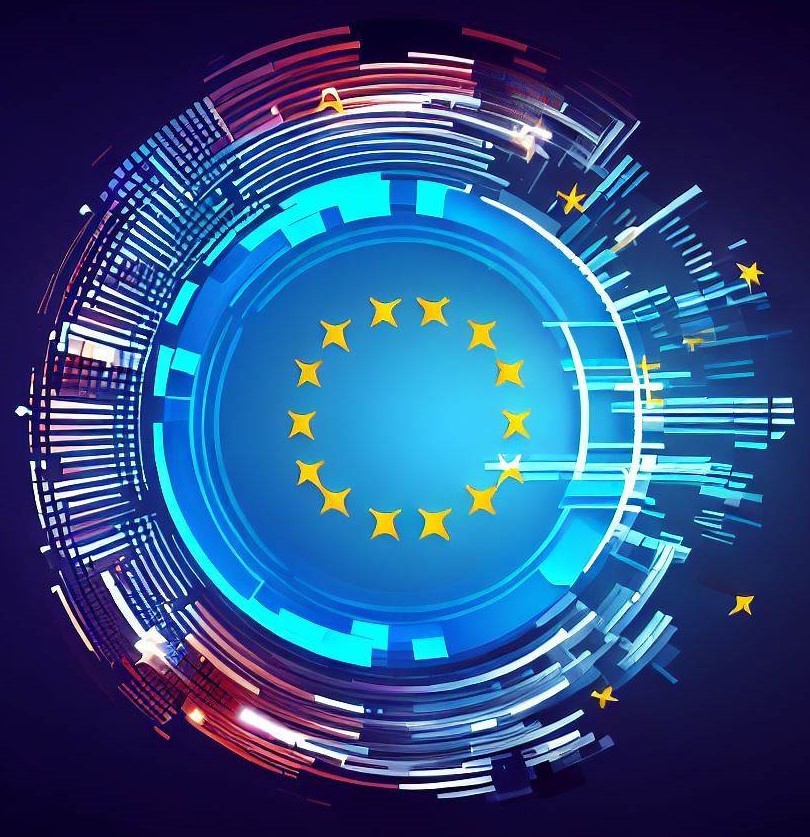
26 September – 3 October 2025
HIGHLIGHT OF THE WEEK
The rise of AI slop: When social media turns more artificial
Last Thursday, Meta quietly introduced Vibes, a new short-form video feed in the Meta AI app, wholly powered by AI. Rather than spotlighting real creators or grassroots content, the feed is built around synthetic content.
This Tuesday, OpenAI revealed Sora, a companion app centred on AI-created short videos, complete with ‘cameo’ features letting people insert their own faces (with permission) into generative scenes.
From the outside, both Vibes and Sora look like competitive copies of TikTok or Reels — only their entire content pipeline is synthetic.
They are the first dedicated firehoses of what has been officially termed ‘AI slop.’ This phrase, added to the Cambridge Dictionary in July 2025 and defined as ‘content on the internet that is of very low quality, especially when it is created by AI,’ perfectly captures the core concern.
Across the tech world, reactions ranged from bemused to alarmed. Because while launching a new social media product is hardly radical, creating a platform whose entire video ecosystem is synthetic — devoid of human spark — is something else entirely.
Why is it concerning? Because it blurs the line between real and fake, making it hard to trust what you see. It can copy creators’ work without permission and flood feeds with shallow, meaningless videos that grab attention but add little value. Algorithms exploit user preferences, while features like synthetic cameos can be misused for bullying or identity abuse. And then there’s also the fact that AI clips typically lack human stories and emotion, eroding authenticity.
What’s next? Ultimately, this shift to AI-generated content raises a philosophical question: What is the purpose of our shared digital spaces?
As we move forward, perhaps we need to approach this new landscape more thoughtfully — embracing innovation where it serves us, but always making space for the authentic, the original, and the human.
For now, Vibes and Sorra have not yet been rolled out worldwide. Given the tepid response from early adopters, their success is far from guaranteed. Ultimately, their fate hinges entirely on the extent to which people will use them.

IN OTHER NEWS THIS WEEK
UNGA80 turns spotlight on digital issues and AI governance
In our previous newsletter, published on Friday, we covered all developments at the UNGA80 up to that day. In this edition, we bring you everything that unfolded from Friday through Monday.
On Friday, AI governance, digital cooperation, and the critical issue of child safety in the digital space stood out in the statements. Member states underlined that the transformative potential of AI for development – from the green energy transition to improved public services – is inextricably linked to the urgent need for global governance. Several leaders welcomed the new AI mechanisms established by UNGA, while others called for new frameworks to manage risks, particularly those related to cybercrime, disinformation, and the mental health of youth. A recurring theme was the need to actively address the digital divide through investments in digital infrastructure, skills, and technology transfer, stressing that the benefits of this new era must be shared fairly with all. The discussions reinforced the message that tackling these complex, interconnected challenges requires mature multilateralism and reinforced international cooperation.
On Saturday, several statements highlighted the importance of d harnessing AI and digital technologies for development, security, and inclusive growth. Delegates emphasised responsible AI governance, ethical frameworks, and international norms to manage risks, including in military applications. The need for equitable access to AI, digital literacy, and capacity building for developing countries was highlighted to bridge technological and social divides. Participants also addressed cybersecurity, disinformation, and the influence of global tech corporations, emphasising the importance of multilateral cooperation and human-centric approaches. One echoing message was that leveraging AI and digital innovation responsibly can drive sustainable development, economic autonomy, and long-term prosperity for all.
On Monday, the transformative potential and urgent risks associated with AI continued to be highlighted. While AI can boost development, health, education, and productivity – especially in least developed countries – it must be governed responsibly to prevent inequality, bias, and insecurity. Calls for a global AI framework were echoed in various statements, alongside broader appeals for inclusive digital cooperation, accelerated technology transfer, and investment in infrastructure, literacy, and talent development. Speakers warned that digital disruption is deepening geopolitical divides, with smaller and developing nations demanding a voice in shaping emerging governance regimes. Bridging the digital divide, advancing secure and rights-based technologies, and protecting against cybercrime were framed as essential.
The bigger picture: A comprehensive coverage of UNGA80 can be found on our dedicated web page.
Chips and sovereignty: From globalisation to guarded autonomy
The global race for semiconductor dominance is accelerating, with both the EU and Taiwan asserting tighter control over their technological assets in response to growing US pressure.
EU member states have called for a revised and more assertive EU Chips Act, arguing that Europe must treat semiconductors as a strategic industry on par with aerospace and defence. The signatories — representing all 27 EU economies — warn that while competitors like the US and Asia are rapidly scaling public investment, Europe risks falling behind unless it strengthens its domestic ecosystem across R&D, design, manufacturing, and workforce development.
The proposed ‘second-phase Chips Act’ is built around three strategic objectives:
- Prosperity, through a competitive and innovation-led semiconductor economy
- Indispensability, by securing key control points in the value chain
- Resilience, to guarantee supply for critical sectors during geopolitical shocks.
The EU’s message is clear: Europe intends not just to participate in the semiconductor industry, but to shape it on its own terms, backed by coordinated investment, industrial alliances, and international partnerships that reinforce — rather than dilute — strategic autonomy.
That same theme of sovereignty defines Taiwan’s position.
Amid negotiations with Taiwan, US Commerce Secretary Howard Lutnick floated a proposal that only half of America’s chips should be produced in Taiwan, relocating the other half to the USA, to reduce dependence on a single foreign supplier. But Taiwan’s Vice Premier Cheng Li-chiun dismissed the idea outright, stating that such terms were never part of formal talks and would not be accepted.
While Taiwan is willing to deepen commercial ties with the US, it refuses to relinquish control over the advanced semiconductor capabilities that underpin its geopolitical leverage.
The bottom line: The age of supplier nations is over; The age of semiconductor sovereignty has begun. The message is the same on both sides of the Atlantic: chips are too critical to trust to someone else.
From code to court: xAI vs OpenAI and Apple
In the high-stakes arena of AI, a bitter rivalry is now unfolding in courtrooms.
Elon Musk’s AI venture xAI has launched an aggressive new lawsuit against OpenAI, accusing it of orchestrating a coordinated ‘poaching’ campaign to steal proprietary technology. xAI claims that OpenAI recruiters targeted engineers who then illicitly transferred source code, data-centre playbooks, and training methodologies to further OpenAI’s competitive edge.
According to xAI, key incidents included employees uploading confidential files to personal devices, and repeated AirDrop transfers — behaviour that Musk’s company says amounts to trade secret misappropriation. Their remedy: damages, injunctions, and orders compelling OpenAI to purge models built on the contested materials.
OpenAI, however, fired back. In court filings earlier this week, it asked a judge to dismiss xAI’s claims, calling them part of Musk’s ‘ongoing harassment’ of the company. OpenAI contends that xAI employees are free to leave and be hired elsewhere, and that xAI’s allegations are unsubstantiated.
But the conflict doesn’t stop there.
This August, Musk had accused Apple of colluding with OpenAI to block competition — alleging that Apple disadvantaged the Grok chatbot (developed by xAI) in its App Store rankings precisely to favour OpenAI’s ChatGPT.
Apple and OpenAI have responded together this week in court, asking a federal judge to dismiss this separate antitrust-style claim. Their defence is blunt: the agreement between Apple and OpenAI is explicitly non-exclusive, and Apple retains the freedom to work with other AI providers. Further, they argue, xAI has failed to plausibly show how embedding ChatGPT into Apple devices has harmed competition.
What’s behind all this? The ferocious race for talent, technological leadership, and market dominance in AI. We’ll see how it pans out.
LOOKING AHEAD

On 7–8 October 2025, the ITU will host the Space Sustainability Forum (SSF-25), gathering experts, regulators, industry leaders, and policy makers to address the long-term health, security and governance of outer space.
On 9 October 2025, policymakers, researchers, industry representatives, and civil society actors will gather at Welle 7 in Bern, in situ and online, for the Swiss Internet Governance Forum 2025.
With the theme ‘A Decade of Dialogue and Cooperation: What’s Next?‘, the anniversary edition of the South Eastern European Dialogue on Internet Governance (SEEDIG) is designed as both a stocktaking exercise and a forward-looking consultation.
READING CORNER
Quantum internet is emerging not only as a scientific milestone but as a transformative force that could redefine how governments, healthcare systems, and citizens interact in the digital age.
The annual General Debate at UNGA is the stage where countries outline their strategic priorities, concerns, and proposals. Overall, the sentiment of the General Debate can be distilled into three key words: echo, gloom, and hope.


